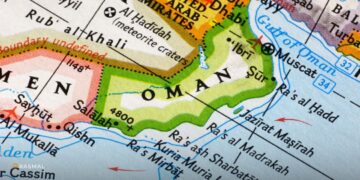Dubai, a global business hub, attracts thousands of expatriates seeking professional opportunities. The city’s work culture is shaped by its diverse workforce, strict labor laws, and a strong emphasis on productivity. Whether you’re considering moving to Dubai for work or have recently relocated, understanding the work environment, expectations, and benefits is crucial for a smooth transition.
Work-Life Balance in Dubai
Dubai offers a dynamic work environment, but achieving a work-life balance can be challenging, depending on the industry. Many professionals work long hours, particularly in finance, real estate, and hospitality. However, government initiatives, such as shorter Ramadan working hours and flexible work arrangements in some sectors, are improving the work-life balance for employees.
Some companies offer remote or hybrid work options, but these are not as widespread as in Western countries. Expatriates looking for a balanced lifestyle should negotiate work conditions before accepting job offers.
Dubai Working Hours
The standard working hours in Dubai are 8 hours per day or 48 hours per week, as per UAE labor laws. However, some industries, especially retail and hospitality, may require longer shifts. During Ramadan, working hours are reduced by two hours for all employees, regardless of their faith. The weekend in Dubai follows a Friday-Saturday or Saturday-Sunday structure, depending on the sector.
Public sector employees enjoy a four-and-a-half-day workweek (Monday to midday Friday), while the private sector typically operates on a five-day workweek. Overtime policies exist, but expats should check contract terms to avoid unpaid extra work.
Dubai Salary and Cost of Living
Salaries in Dubai vary significantly based on the industry, experience, and job role. The UAE follows a tax-free income policy, making it attractive for expats. However, high living costs, especially for housing, education, and healthcare, can offset the salary benefits.
- Average Salaries by Industry:
- Finance & Banking: AED 15,000 – 40,000/month
- Engineering & Construction: AED 12,000 – 35,000/month
- IT & Tech: AED 10,000 – 35,000/month
- Retail & Hospitality: AED 5,000 – 15,000/month
- Cost of Living:
- Rent: AED 4,000 – 15,000/month (depends on location)
- Utilities: AED 500 – 1,500/month
- Groceries: AED 1,500 – 3,000/month
Is Dubai a Good Place to Work?
Dubai is one of the most sought-after destinations for expat professionals due to its tax-free salaries, career growth opportunities, and multicultural work environment. Some of the key advantages of working in Dubai include:
- Multinational Work Culture: Dubai hosts professionals from over 200 nationalities, creating a diverse and inclusive workplace.
- Networking Opportunities: With numerous business events, expos, and networking meetups, professionals have ample opportunities to expand their connections.
- Tax-Free Income: The absence of personal income tax allows employees to take home a significant portion of their earnings.
- Career Advancement: Dubai is home to numerous multinational corporations and rapidly growing startups, offering excellent career prospects.
However, expats should also consider certain challenges, such as cultural adjustments, high cost of living, and competitive job markets.
Labor Laws and Employee Rights in Dubai
Understanding labor laws is crucial for expats to ensure fair treatment at work. The UAE Labor Law covers:
- Employment Contracts: Contracts must clearly state job roles, salary, benefits, and working hours.
- Leave Entitlements: Employees receive 30 days of annual leave and official public holidays.
- Termination and Gratuity Pay: Expats are entitled to end-of-service benefits (gratuity), which are calculated based on the duration of employment.
- Work Visa & Sponsorship: Employers sponsor work visas, and the process involves medical tests and residence permits.
Business Etiquette and Workplace Culture
- Hierarchy & Respect: The workplace structure is often hierarchical, with a strong emphasis on respecting senior management.
- Dress Code: Business attire is expected in most corporate settings. Modesty is encouraged, especially for women.
- Punctuality: Being on time is valued, although meetings may start later than scheduled due to cultural norms.
- Networking & Relationship Building: Strong business relationships are vital, and deals often take time to finalize.
- Cultural Sensitivity: Awareness of Islamic customs, such as avoiding alcohol in business settings, is essential.
How to Secure a Job in Dubai
If you’re considering working in Dubai, follow these steps:
- Research the Job Market: Identify in-demand industries such as finance, technology, healthcare, and construction.
- Apply Online: Use job portals like Bayt, LinkedIn, GulfTalent, and company career pages.
- Network Actively: Attend professional events and connect with recruiters.
- Understand Visa Requirements: Ensure your employer sponsors your work visa before relocating.
- Negotiate Salary & Benefits: Consider housing allowances, insurance, and transportation perks.
Conclusion
Dubai’s work culture offers exciting opportunities for expats, but it also requires adaptation to local customs, labor laws, and corporate expectations. While salaries and career prospects are attractive, maintaining a healthy work-life balance and managing living costs are essential for a rewarding professional experience.
Last Updated on April 2, 2025 by Safiya K
























